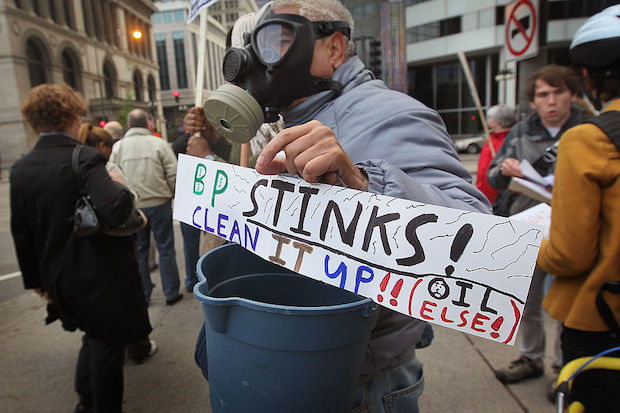Investors are increasingly turning to shareholder activism to make their views heard, and their campaigns are working. As public trust in large businesses and politicians is at an all-time low, many argue that, in the right hands, activism is more effective than political intervention in curbing corporate excess and poor governance.
According to research by FTI Consulting, shareholder campaigns in the UK nearly doubled from 28 to 51 last year as people increasingly used their ownership of companies to make a difference. Globally, campaigns have increased nearly five-fold since 2010 and now focus on a huge range of issues from boardroom pay to climate change.
Recent high-profile campaigns have included pressure on BP and Glencore over disclosure of fossil fuel risks; on French Connection about corporate governance rules; and on HSBC over executive pay. The wave of UK activism looks set to keep building, too, as two-thirds of FTSE 350 companies are renewing their remuneration policies this year, at a time when scrutiny of executive pay and governance is increasing.
Following scandals at companies such as Sports Direct and British Home Stores, the UK government has proposed a number of ways to address perceived boardroom excess and improve corporate standards.
Meanwhile, global asset manager BlackRock has written to FTSE 350 companies highlighting its updated approach to remuneration, including more focus on executive pay increases which are greater than those for their workforce.
Investor groups such as the Investment Association welcome political initiatives on governance, but say shareholder intervention is more effective. If they are right, moves by fund managers such as BlackRock could be more successful than any government action in addressing corporate issues.
Increasing success
Steven Balet, managing director, and Geoff Serednesky, senior director, at FTI Consulting, say investors have seen the success of activism in changing corporate behaviour in North America and are repeating it across the globe.
Though individuals start many campaigns, pension funds, pressure groups and other institutions have shown increasing willingness to take these up these causes, which adds significant momentum. They are encouraged by the fact that most public campaigns now end in settlement, as well as the fact that settlement times have halved in the last three years, according to a recent report by Harvard Law School. At least in America, corporates are capitulating. But there are significant signs of this happening in Europe and other areas too.
Balet says one reason for this is that activists are becoming more sophisticated at working with companies. The latter are therefore more amenable to engaging and settling with activists, and are getting better at anticipating issues, which ends up being cheaper than fighting public campaigns.
Serednesky adds: ‘Activists are realising that private, behind-closed-doors campaigns can be more effective and are less expensive than a public campaign. So activism could be even more successful than we know.’
However, Harvard’s report highlights that one downside of activism is that many settlements ‘fail to secure long-lasting peace between the parties’. Campaigns by investors such as hedge funds can also be used to force an issue for short-term gain. In this case, settling behind closed doors can be negative as it lacks transparency and does not allow longer-term investors to have their say. Activist charity ShareAction has also criticised ‘closed-door’ settlements.
But there are many great examples of the positive effects of activism around the world. For a good flavour and to find out more about getting involved, visit ShareAction.org or Google ‘how to become a shareholder activist’. There are plenty of good articles to help budding activists get started, and to keep this wave of people-power surging onwards.






Comments